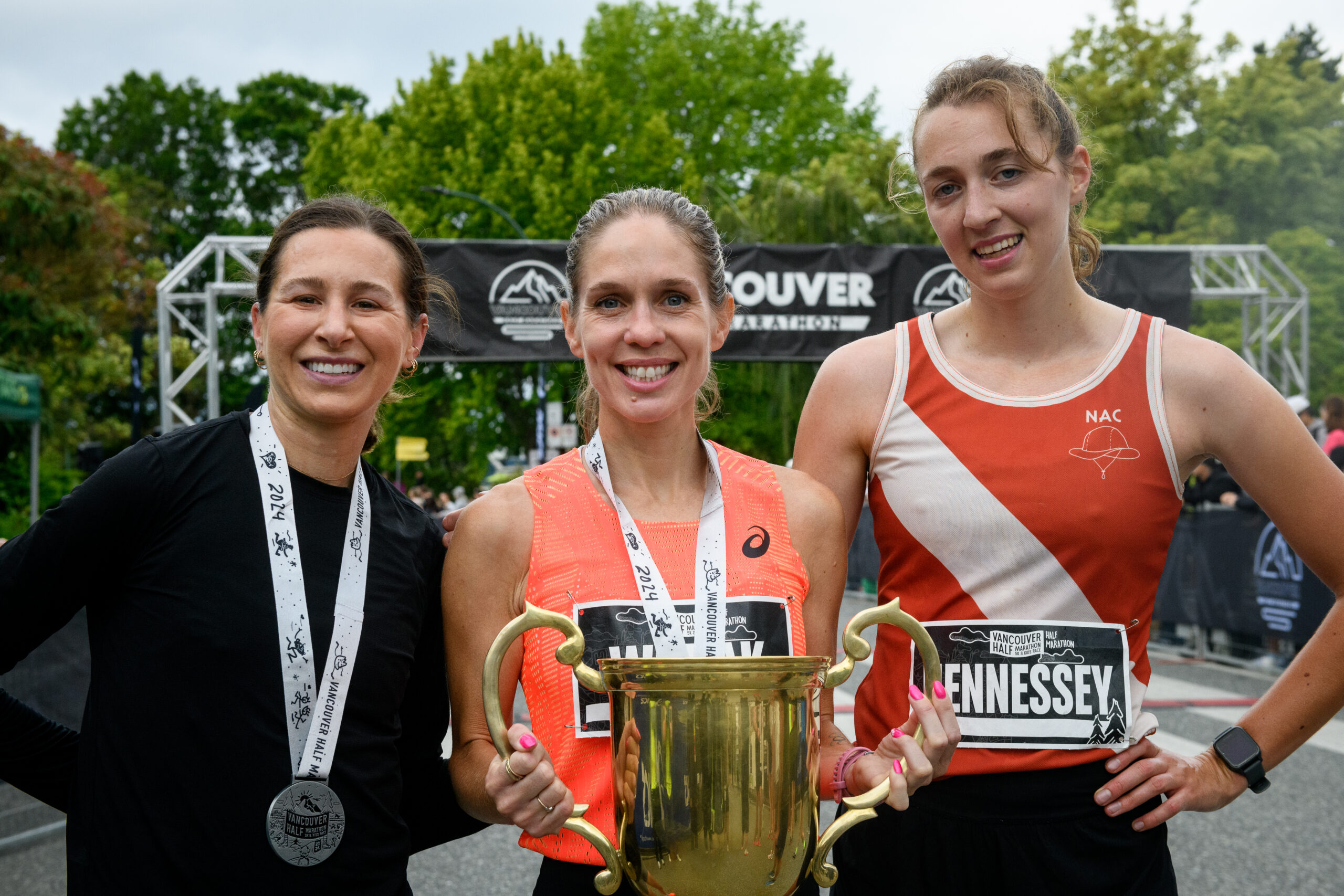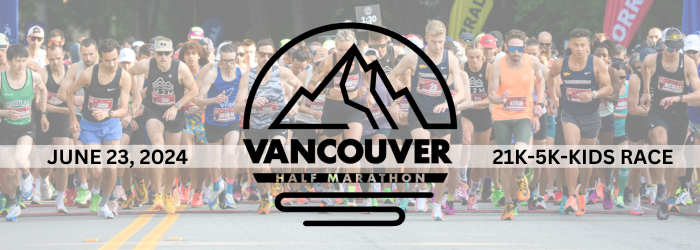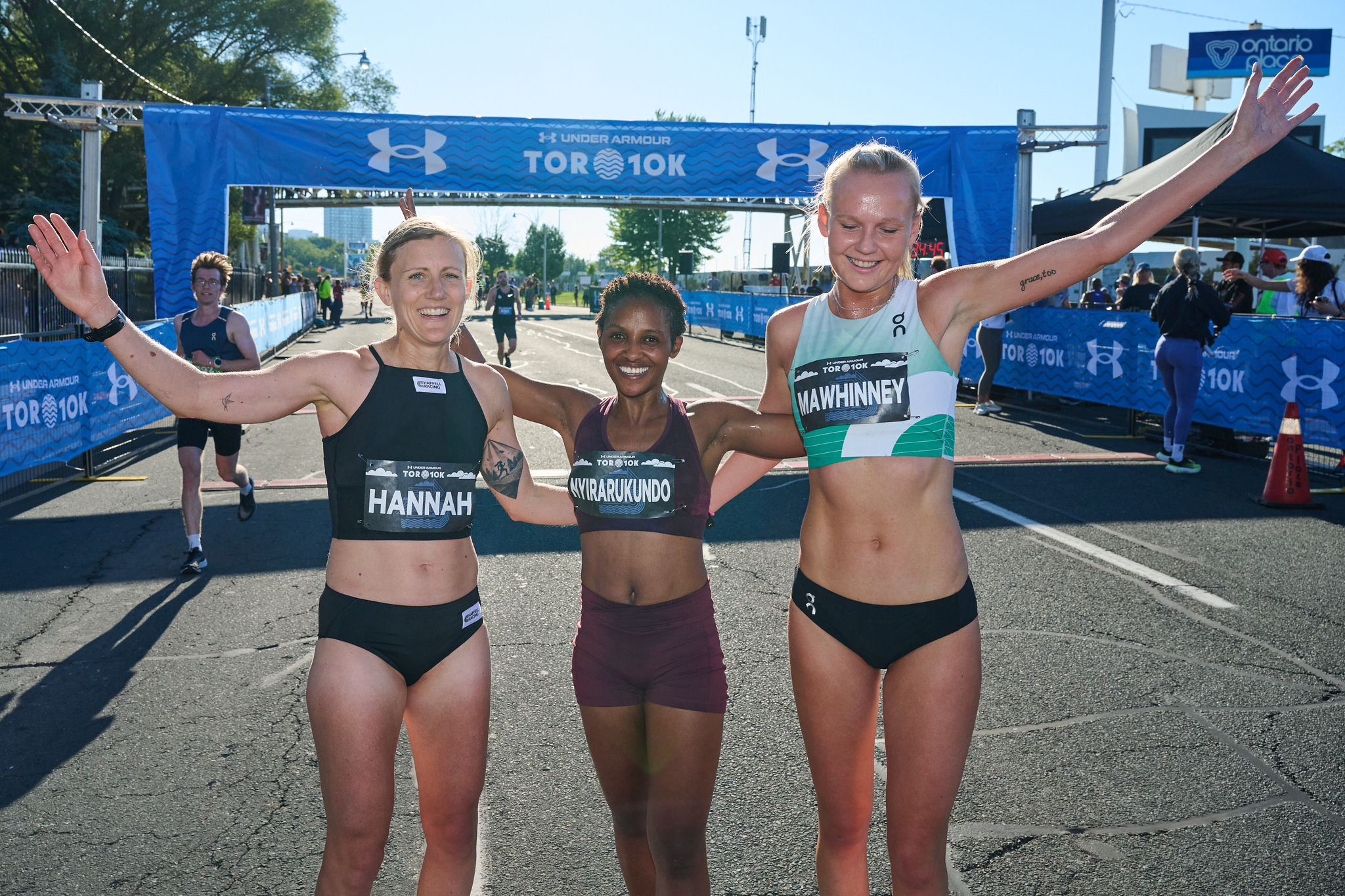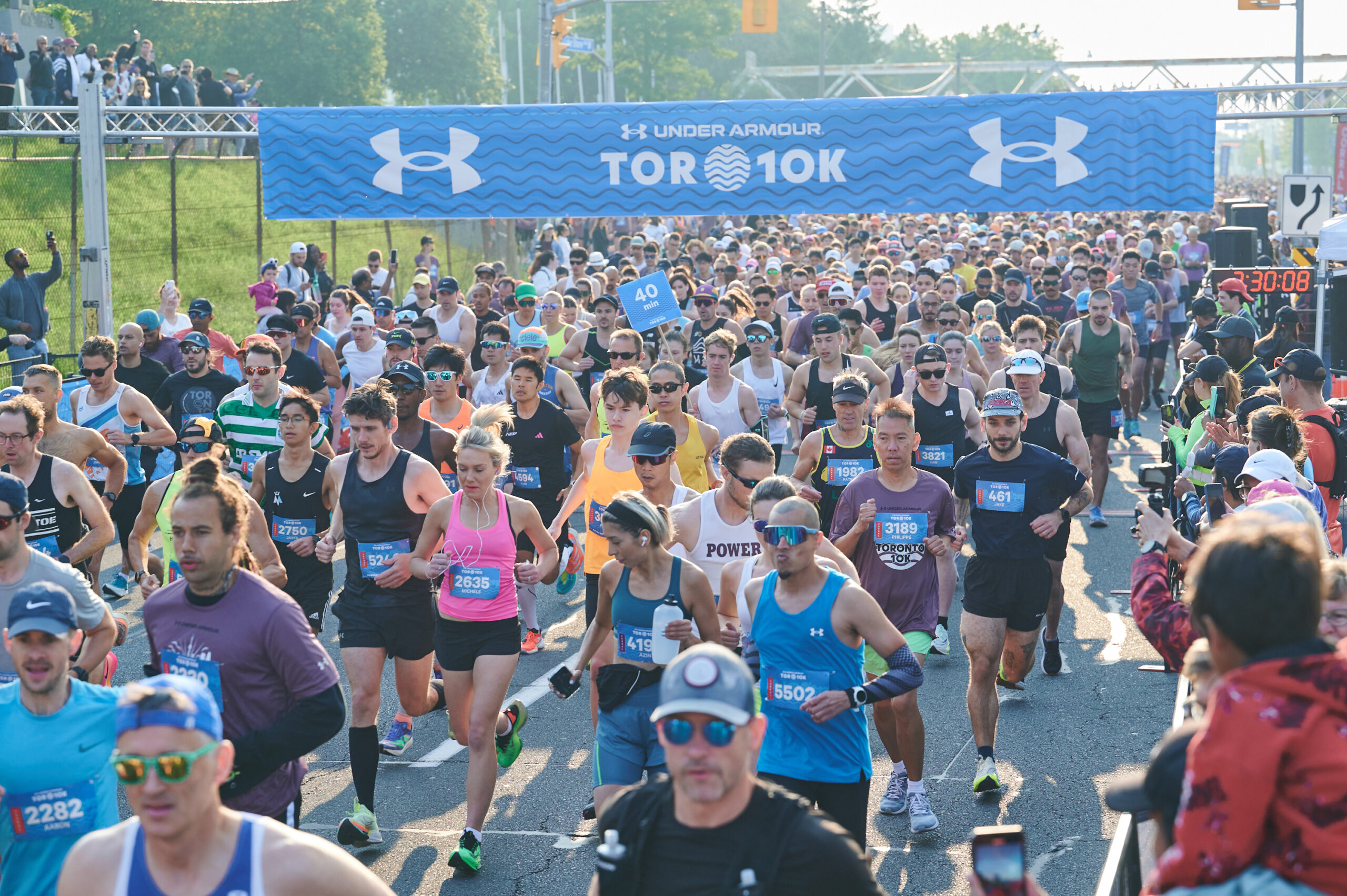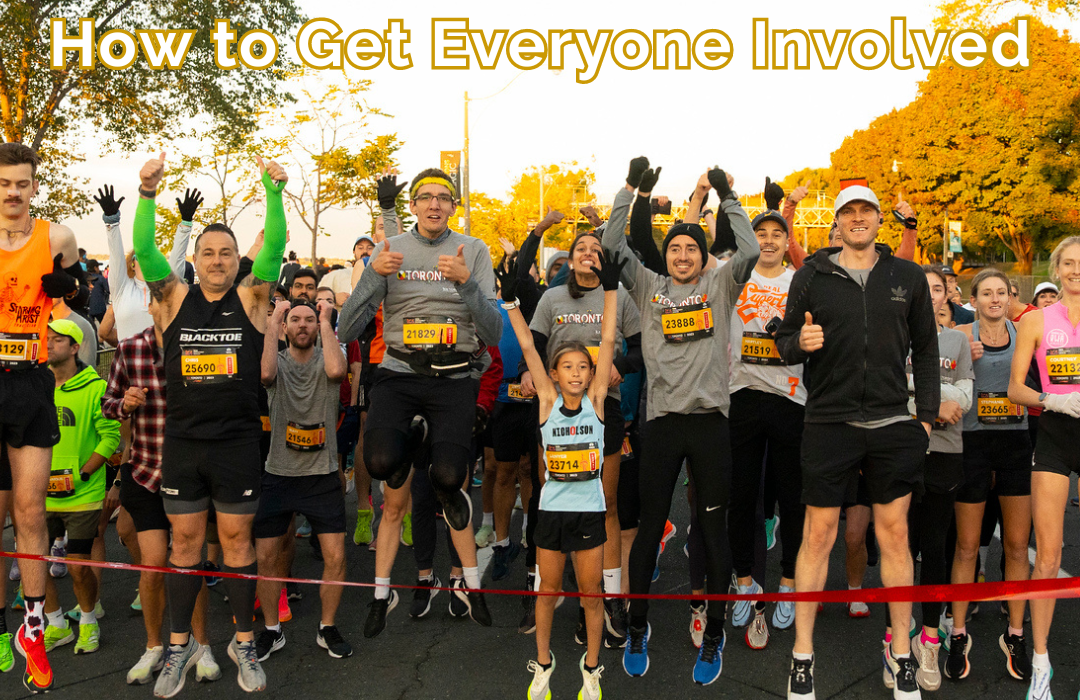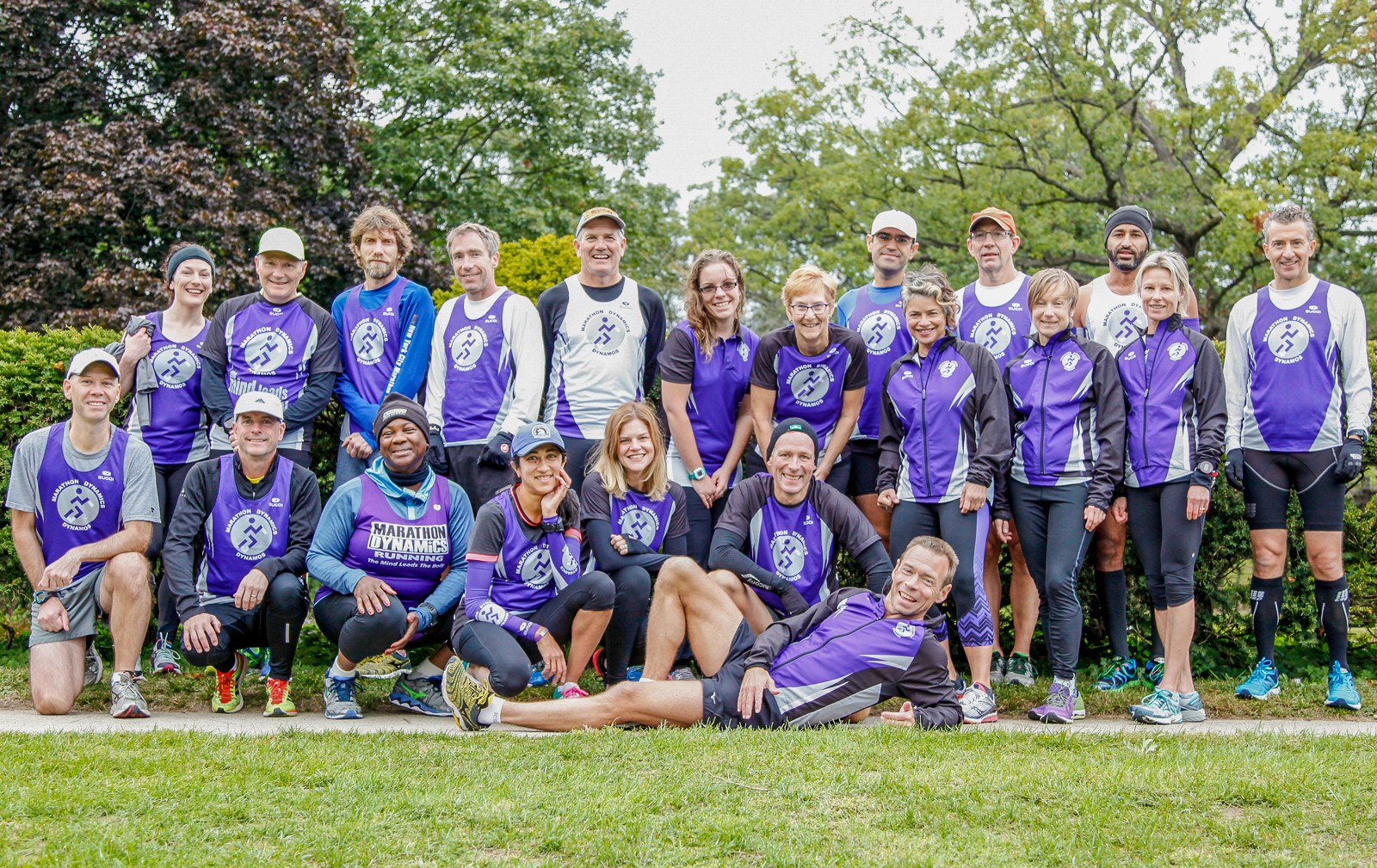
Photo: Marathon Dynamics/provided.
Kevin Smith is involved in a love affair with running that just won’t quit.
The president and head coach of Marathon Dynamics – a successful road running group based in Toronto – has been a runner for more than 35 years through thick and thin. He’s endured years of injury that have helped him discover the many secrets to longevity in running and fast results. In fact, in 2016, he was crowned the Canada Running Series masters champion.
Smith’s desire to master the art of running led him to the world of coaching, and his results as a coach resemble his results as an athlete – his product seems to improve with age. Many masters-level runners have excelled under his tutelage. A proven expert, Smith shares his best tips.
Five tips for great masters running
1. Live a physically-dynamic lifestyle
The most important point for enduring masters running success is to keep moving. It’s not just about adding aerobic cross-training, or even strength-training to your routine. If you found that over the past few years, you have:
1. continually suffered long injury breaks;
2. not improved in absolute terms, or even have declined steadily in performance;
3. gained weight; or
4. been in a mental/emotional rut with your running
…Then add in either a 30-minute power walk or a 20-minute slow, easy, relaxed, but short, quick-stepping jog to your routine, pretty much every single day (at least 5-6 days per week).
2. Run fast every week
You’ve got to spend at least a little time every week running faster than you hope or expect to run when racing. Use it or lose it. You can (and should!) do this in a variety of subtle, low injury-risk ways.
For best results, many times per week:
1. Vary your speed work as you progress through training phases (tempo, hills, intervals, repetitions)
2. During easy recovery runs, include short, playful bursts of faster running, like fartlek running, “hill charges” (short steep inclines for 10- to 30-seconds), to preserve neuromuscular quickness
3. Do 4-5 striders (gentle 100-150m progressive, form-conscious pick-ups) before any speed work and after at least 1-2 other run types
4. Spend at least 10-15% of your total weekly volume running at or faster than current goal race pace
3. Strength train
1. Keep up running form drills year round (As, Bs, Cs, etc.).
2. Include at least 4-6 weeks of specific hill rep training in your build, and run at least one of your regular weekly runs on a course “hilly in nature”
3. Do run-specific strength work &/or weight training (legs, hips, core, upper body), to maintain your explosiveness and propulsiveness
Ask yourself “over the past 2-3 years, what muscle groups or joints have given me the most grief, especially during high mileage, on long runs or races?” Exercises such as lunges, step-ups, leg press, pistol squats, hamstring curls, “calf ups”, and other unique moves, have certainly helped me train consistently.
4. Run with the right crowd
For the past 20 years or so, I’ve done my weekend long runs with the same great group of runners who, like me, have been running since their teens and can’t seem to get it out of their systems. I look forward to and treasure those runs for the personal connectivity and shared experience as much as for any physical, health or performance benefits that accrue.
It’s what gives meaning to our pursuit, creates lasting memories, and provides significance and resonance to our running lives. Without that context the running journey is certainly lonely, and often empty, bereft of the investment in others’ running lives and their investment in our own.
5. Stay healthy
The more complete and well-rounded a human being you are, the healthier you’ll be over time, and the more you will continue to improve…or at the very least, hold on to what you’ve got!
1. Dynamic stretching before runs, static stretching after.
2. Treat yourself to the odd, “surprise” day off (via circumstance, intuition or instinct)
3. Include a short (4-5 minutes, at least) warm up jog before every run (except long slow distance)
4. Eat smart—high quality (colourful, varied, fresh foods), and the “right” quantity (portion sizes are often too large)
5. Sleep well (always seven hours, try for eight, especially after taxing run days)
6. Drink lots (five to six extra cups of water throughout the day)
7. Pamper yourself: massage, relax, create (read, write), contribute (volunteer) and play (games, puzzles)
Coach Kevin Smith is currently ranked second in the 2018 Canada Running Series masters points table, and may attempt to regain his title from 2016 by racing the Scotiabank Toronto Waterfront Marathon this fall. He has a personal best of 2:42, which he achieved when he was 42.



